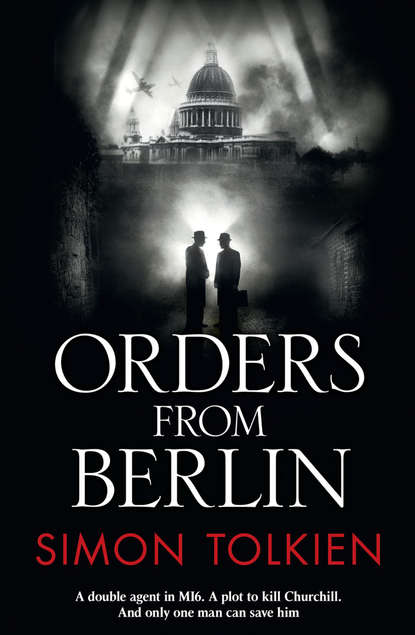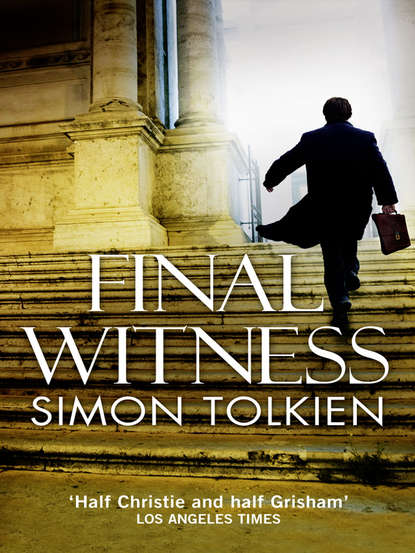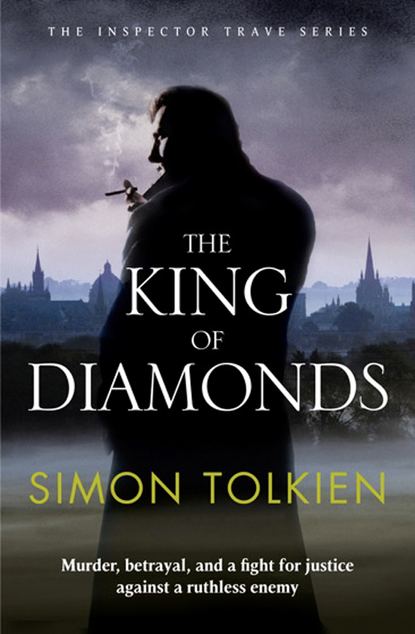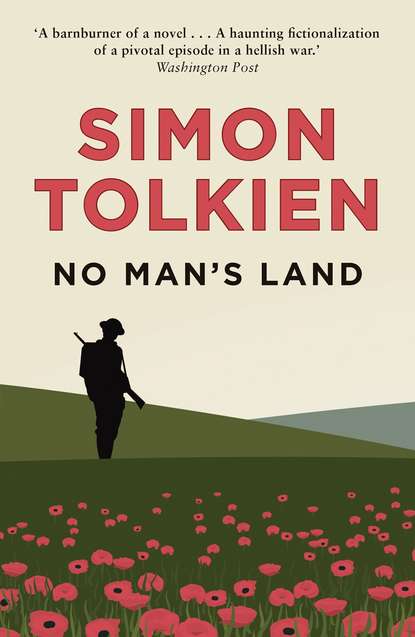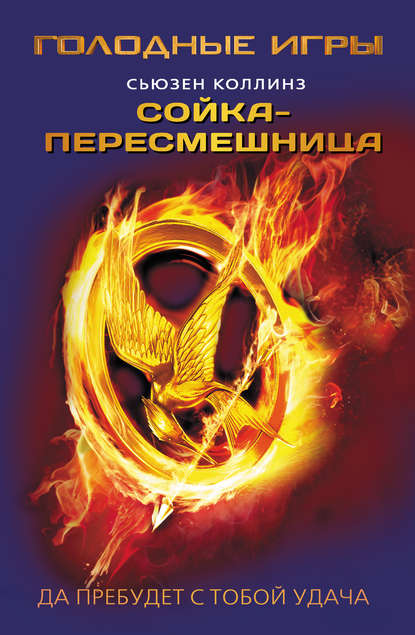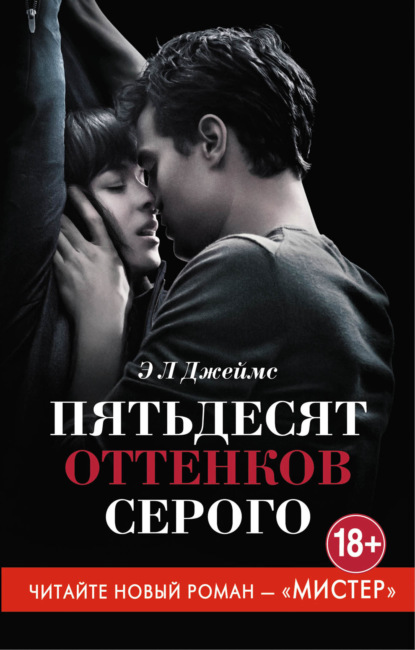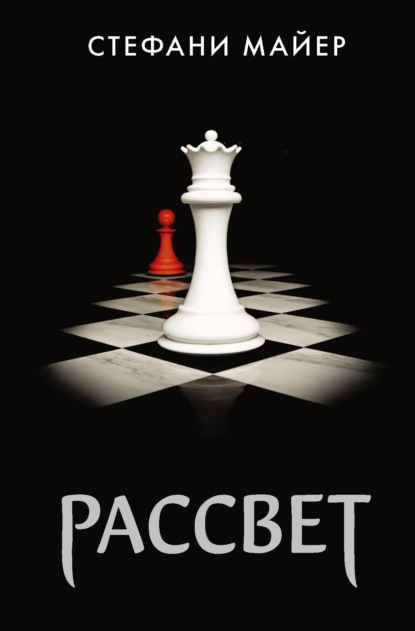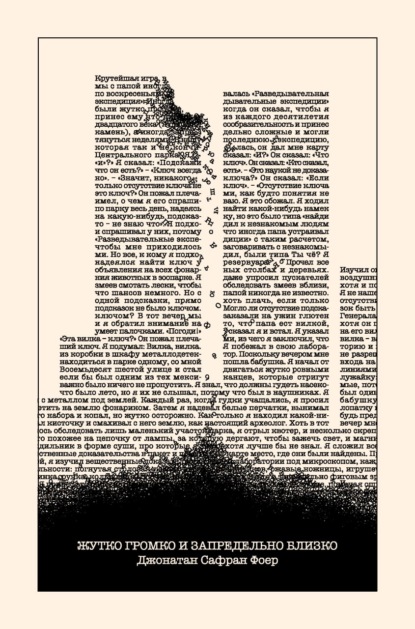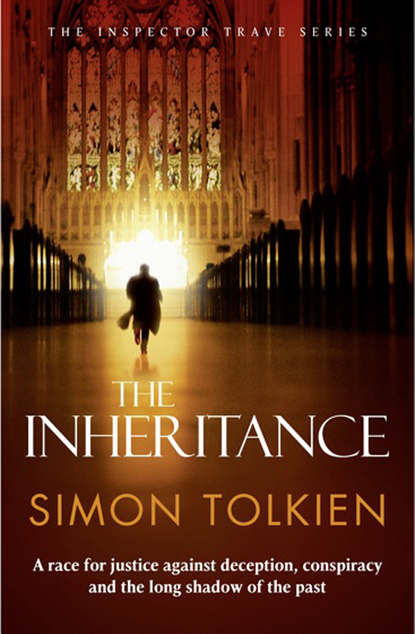
Текст
отзывы: 0 | рейтинг: 0
Полная версия
Полная версия
The Inheritance
Simon Tolkien
When an eminent art historian is found dead in his study, all the evidence points to his estranged son, Stephen. With his fingerprints on the murder weapon, Stephen’s guilt seems undeniable.As the police begin to question five other people who were in the house at the time, it is revealed that Stephen’s father was involved at the end of World War II in a deadly hunt for a priceless relic in northern France, and the case begins to unravel.As Stephen’s trial unfolds at the Old Bailey, Inspector Trave of the Oxford police decides he must go to France and find out what really happened in 1944. What artefact could be so valuable it would be worth killing for? But Trave has very little time – the race is on to save Stephen from the gallows.
SIMON TOLKIEN
The Inheritance
For my mother, Faith Tolkien
Table of Contents
Title Page (#ue67090c1-be8f-5103-b321-d840a0b0ff33)
Dedication (#ud84e509b-9bd8-5db9-9e0a-d1908f218894)
Introductory Note (#u20d02b94-4852-58ff-8611-0a6474a89b44)
Prologue: Normandy 1944 (#uf4dcabd8-76c1-5786-827d-76b195a16996)
Part One: 1959 (#u43c43a05-fca1-5058-9cd5-8d36d3102fc9)
Chapter 1 (#u49392414-234e-53a4-a2eb-d4117f675c9b)
Chapter 2 (#u17135194-6c3f-59d0-9974-6b090d7662b3)
Chapter 3 (#ua3af3623-dadc-575d-ba50-51987b902333)
Chapter 4 (#u3a46043b-d5a1-52ce-af22-691ac9db459e)
Chapter 5 (#u32835063-7cb5-531c-8551-50516ceebac6)
Chapter 6 (#u751f91f2-8ee2-561e-9937-c5296c9eeced)
Chapter 7 (#uf7eb23ed-6ce8-59c4-8aa6-bce7ed02cdb8)
Chapter 8 (#litres_trial_promo)
Chapter 9 (#litres_trial_promo)
Chapter 10 (#litres_trial_promo)
Chapter 11 (#litres_trial_promo)
Chapter 12 (#litres_trial_promo)
Chapter 13 (#litres_trial_promo)
Chapter 14 (#litres_trial_promo)
Part Two (#litres_trial_promo)
Chapter 15 (#litres_trial_promo)
Chapter 16 (#litres_trial_promo)
Chapter 17 (#litres_trial_promo)
Chapter 18 (#litres_trial_promo)
Chapter 19 (#litres_trial_promo)
Chapter 20 (#litres_trial_promo)
Part Three (#litres_trial_promo)
Chapter 21 (#litres_trial_promo)
Chapter 22 (#litres_trial_promo)
Chapter 23 (#litres_trial_promo)
Chapter 24 (#litres_trial_promo)
Chapter 25 (#litres_trial_promo)
Chapter 26 (#litres_trial_promo)
Chapter 27 (#litres_trial_promo)
Chapter 28 (#litres_trial_promo)
Chapter 29 (#litres_trial_promo)
Acknowledgments (#litres_trial_promo)
About the Author (#litres_trial_promo)
Also by Simon Tolkien (#litres_trial_promo)
Copyright (#litres_trial_promo)
About the Publisher (#litres_trial_promo)
INTRODUCTORY NOTE
The controversial executions of Derek Bentley and Ruth Ellis in the 1950s increased public pressure in the United Kingdom for the abolition of hanging, and this was answered in part by the passing of the Homicide Act in 1957, which limited the imposition of the death penalty to five specific categories of murder. Henceforward only those convicted of killing police officers or prison guards and those who had committed a murder by shooting or in the furtherance of theft or when resisting arrest could suffer the ultimate punishment. The effect of this unsatisfactory legislation was that a poisoner or strangler acting with premeditation would escape the rope, whereas a man who shot another in a fit of rage might not. This anomaly no doubt helped the campaign for outright abolition, which finally reached fruition with the passage of the Murder (Abolition of Death Penalty) Act in 1965.
Death sentences were carried out far more quickly in England in the 1950s than they are in the United States today. A single appeal against the conviction but not the sentence was allowed, and, if it failed, the Home Secretary made a final decision on whether to exercise the royal prerogative of mercy on behalf of the Queen, marking the file ‘the law must take its course’ if there were to be no reprieve. There was often no more than a month’s interval between conviction and execution. Ruth Ellis, for example, spent just three weeks and three days in the condemned cell at Holloway Prison in 1955 before she was hanged by Albert Pierrepoint for the crime of shooting her boyfriend.
There was thus very little time available for lawyers or other interested parties trying desperately to uncover new evidence that might exonerate a client sentenced to die. They were quite literally working against the clock.
PROLOGUE
NORMANDY
1944
They were safe in the trees, waiting for the Germans to come. Carson had driven the Jeep off the drive, and the silver-grey branches had crackled and broken as he’d wedged it into its hiding place. And now they waited on either side of the road with their fingers on the triggers of their American-made machine guns. Nothing. No wind in the trees, no movement in the air, until just after eight o’clock, when the dust came up in a yellow cloud and the two trucks came round the corner.
And then Ritter felt the bullets feeding through the magazine, the quick vibrations in his arms from the gun, and saw the men in the trucks jumping up and down like puppets. There was one young soldier at the end who ran away down the road, but Colonel Cade walked out of the trees with his rifle and shot him in the back of the head just before he reached the corner. It was a good ambush.
Afterwards, Carson and Ritter pushed the trucks into the woods, while the colonel selected rifles and pistols from the bodies of their dead owners. Three of each. He made them leave their own guns behind.
And so they walked on up to the house with the dead soldiers’ rifles slung over their shoulders and the snub-nosed German Mauser pistols in their pockets. They were a strange, ill-assorted group. Walking in the middle, the tall, thin colonel towered over his two companions. His pale blue eyes were almost opaque, revealing nothing of the man inside, and his long aquiline nose gave him an ascetic look that seemed oddly at variance with his uniform. And yet he carried himself with an air of natural authority that made it obvious that he was the man in charge.
On the colonel’s right, Sergeant Ritter was far more clearly a military man with his clipped black moustache and polished shoes and buttons. He was a big man and he had begun to sweat in the evening heat. But he didn’t complain. He knew that they had work to do. Looking past the colonel, Ritter glared over at Corporal Carson, who was walking with a deliberate swagger, swaying his narrow hips and shoulders as he expertly flicked a piece of chewing gum from one side of his mouth to the other in time with each step he took. The young man’s disrespect disgusted Ritter. But he kept his peace. Carson had been the only soldier he could find to do the job. He’d have to do.
They walked past green stony fields and rows of overgrown vines until they came to a fork in the drive and passed an old sign on which someone had once upon a time painted the words ‘Proprieté Priveé.’ It was nailed to the trunk of a plane tree, and Carson read it out loud in his cockney accent and laughed like it was some kind of joke. But the colonel ignored him. He had other things on his mind.
Simon Tolkien
When an eminent art historian is found dead in his study, all the evidence points to his estranged son, Stephen. With his fingerprints on the murder weapon, Stephen’s guilt seems undeniable.As the police begin to question five other people who were in the house at the time, it is revealed that Stephen’s father was involved at the end of World War II in a deadly hunt for a priceless relic in northern France, and the case begins to unravel.As Stephen’s trial unfolds at the Old Bailey, Inspector Trave of the Oxford police decides he must go to France and find out what really happened in 1944. What artefact could be so valuable it would be worth killing for? But Trave has very little time – the race is on to save Stephen from the gallows.
SIMON TOLKIEN
The Inheritance
For my mother, Faith Tolkien
Table of Contents
Title Page (#ue67090c1-be8f-5103-b321-d840a0b0ff33)
Dedication (#ud84e509b-9bd8-5db9-9e0a-d1908f218894)
Introductory Note (#u20d02b94-4852-58ff-8611-0a6474a89b44)
Prologue: Normandy 1944 (#uf4dcabd8-76c1-5786-827d-76b195a16996)
Part One: 1959 (#u43c43a05-fca1-5058-9cd5-8d36d3102fc9)
Chapter 1 (#u49392414-234e-53a4-a2eb-d4117f675c9b)
Chapter 2 (#u17135194-6c3f-59d0-9974-6b090d7662b3)
Chapter 3 (#ua3af3623-dadc-575d-ba50-51987b902333)
Chapter 4 (#u3a46043b-d5a1-52ce-af22-691ac9db459e)
Chapter 5 (#u32835063-7cb5-531c-8551-50516ceebac6)
Chapter 6 (#u751f91f2-8ee2-561e-9937-c5296c9eeced)
Chapter 7 (#uf7eb23ed-6ce8-59c4-8aa6-bce7ed02cdb8)
Chapter 8 (#litres_trial_promo)
Chapter 9 (#litres_trial_promo)
Chapter 10 (#litres_trial_promo)
Chapter 11 (#litres_trial_promo)
Chapter 12 (#litres_trial_promo)
Chapter 13 (#litres_trial_promo)
Chapter 14 (#litres_trial_promo)
Part Two (#litres_trial_promo)
Chapter 15 (#litres_trial_promo)
Chapter 16 (#litres_trial_promo)
Chapter 17 (#litres_trial_promo)
Chapter 18 (#litres_trial_promo)
Chapter 19 (#litres_trial_promo)
Chapter 20 (#litres_trial_promo)
Part Three (#litres_trial_promo)
Chapter 21 (#litres_trial_promo)
Chapter 22 (#litres_trial_promo)
Chapter 23 (#litres_trial_promo)
Chapter 24 (#litres_trial_promo)
Chapter 25 (#litres_trial_promo)
Chapter 26 (#litres_trial_promo)
Chapter 27 (#litres_trial_promo)
Chapter 28 (#litres_trial_promo)
Chapter 29 (#litres_trial_promo)
Acknowledgments (#litres_trial_promo)
About the Author (#litres_trial_promo)
Also by Simon Tolkien (#litres_trial_promo)
Copyright (#litres_trial_promo)
About the Publisher (#litres_trial_promo)
INTRODUCTORY NOTE
The controversial executions of Derek Bentley and Ruth Ellis in the 1950s increased public pressure in the United Kingdom for the abolition of hanging, and this was answered in part by the passing of the Homicide Act in 1957, which limited the imposition of the death penalty to five specific categories of murder. Henceforward only those convicted of killing police officers or prison guards and those who had committed a murder by shooting or in the furtherance of theft or when resisting arrest could suffer the ultimate punishment. The effect of this unsatisfactory legislation was that a poisoner or strangler acting with premeditation would escape the rope, whereas a man who shot another in a fit of rage might not. This anomaly no doubt helped the campaign for outright abolition, which finally reached fruition with the passage of the Murder (Abolition of Death Penalty) Act in 1965.
Death sentences were carried out far more quickly in England in the 1950s than they are in the United States today. A single appeal against the conviction but not the sentence was allowed, and, if it failed, the Home Secretary made a final decision on whether to exercise the royal prerogative of mercy on behalf of the Queen, marking the file ‘the law must take its course’ if there were to be no reprieve. There was often no more than a month’s interval between conviction and execution. Ruth Ellis, for example, spent just three weeks and three days in the condemned cell at Holloway Prison in 1955 before she was hanged by Albert Pierrepoint for the crime of shooting her boyfriend.
There was thus very little time available for lawyers or other interested parties trying desperately to uncover new evidence that might exonerate a client sentenced to die. They were quite literally working against the clock.
PROLOGUE
NORMANDY
1944
They were safe in the trees, waiting for the Germans to come. Carson had driven the Jeep off the drive, and the silver-grey branches had crackled and broken as he’d wedged it into its hiding place. And now they waited on either side of the road with their fingers on the triggers of their American-made machine guns. Nothing. No wind in the trees, no movement in the air, until just after eight o’clock, when the dust came up in a yellow cloud and the two trucks came round the corner.
And then Ritter felt the bullets feeding through the magazine, the quick vibrations in his arms from the gun, and saw the men in the trucks jumping up and down like puppets. There was one young soldier at the end who ran away down the road, but Colonel Cade walked out of the trees with his rifle and shot him in the back of the head just before he reached the corner. It was a good ambush.
Afterwards, Carson and Ritter pushed the trucks into the woods, while the colonel selected rifles and pistols from the bodies of their dead owners. Three of each. He made them leave their own guns behind.
And so they walked on up to the house with the dead soldiers’ rifles slung over their shoulders and the snub-nosed German Mauser pistols in their pockets. They were a strange, ill-assorted group. Walking in the middle, the tall, thin colonel towered over his two companions. His pale blue eyes were almost opaque, revealing nothing of the man inside, and his long aquiline nose gave him an ascetic look that seemed oddly at variance with his uniform. And yet he carried himself with an air of natural authority that made it obvious that he was the man in charge.
On the colonel’s right, Sergeant Ritter was far more clearly a military man with his clipped black moustache and polished shoes and buttons. He was a big man and he had begun to sweat in the evening heat. But he didn’t complain. He knew that they had work to do. Looking past the colonel, Ritter glared over at Corporal Carson, who was walking with a deliberate swagger, swaying his narrow hips and shoulders as he expertly flicked a piece of chewing gum from one side of his mouth to the other in time with each step he took. The young man’s disrespect disgusted Ritter. But he kept his peace. Carson had been the only soldier he could find to do the job. He’d have to do.
They walked past green stony fields and rows of overgrown vines until they came to a fork in the drive and passed an old sign on which someone had once upon a time painted the words ‘Proprieté Priveé.’ It was nailed to the trunk of a plane tree, and Carson read it out loud in his cockney accent and laughed like it was some kind of joke. But the colonel ignored him. He had other things on his mind.
Другие книги автора:
Популярные книги





